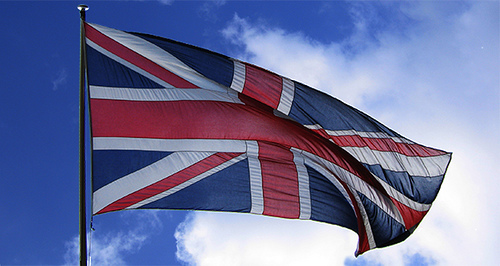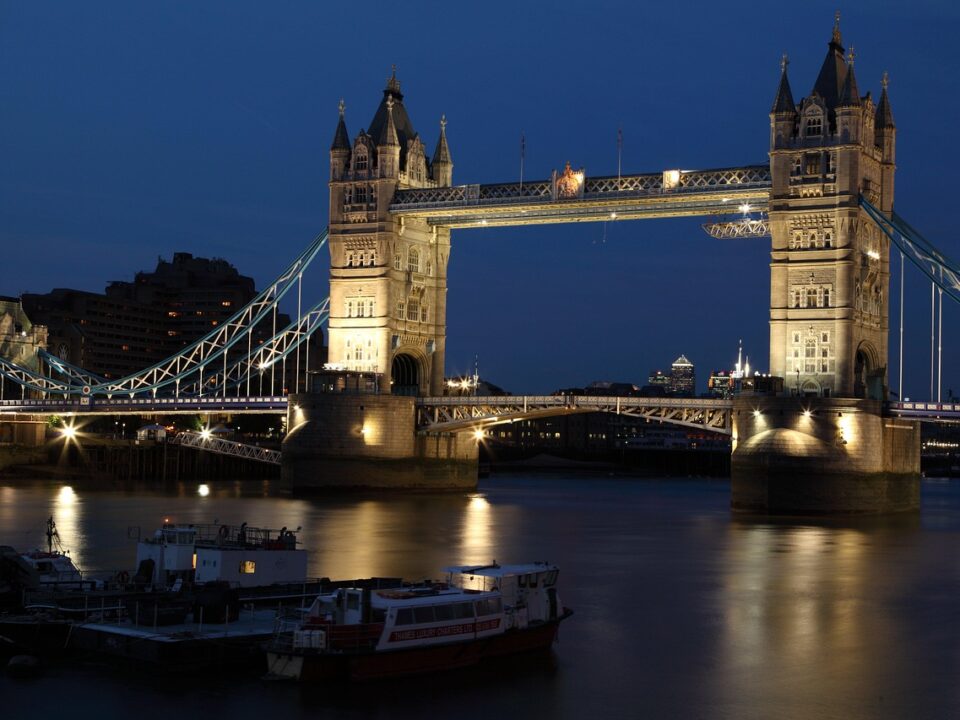
Interview with Daniel Sokol, barrister, founder of Alpha Student Hub, and semi-professional magician!
November 20, 2024
Trainee Solicitor Wins Miss Charity 2024 as the Great Britain London Finalist 2024
November 20, 2024Everyone has the right to clean, safe water and warm homes. Yet at the current time our waterways are being polluted by raw sewage being discharged by water companies while water bills have soared. It is a disgrace that members of the public are paying increasing water bills while water companies are failing to provide a decent service to their customers and the wider public. Furthermore, the recent energy crisis has also shown that there are millions of people who are struggling with energy costs and many people are having to choose between heating and eating. Given the ongoing cost-of-living crisis and the surge in energy bills, it is a disgrace that people are struggling to pay their energy bills while companies are making enormous profits. This article sets out to explore the potential benefits of nationalising both the water and energy industries so that they are run in the public good.
The water industry:
Reducing water bills:
Nationalising the water industry would see water bills fall. This is because putting the water industry back into public ownership would divert funds from executive boss bonuses and shareholder dividend payments to investment in infrastructure. Taking the water companies back into public ownership would also dramatically cut the amount people are billed. This is because 28% of every water bill paid, is spent servicing debt that water company owners have taken on. That is outrageous as no customer should see any amount they pay on their water bill being used to service a company’s debts. What we have seen in recent months is water companies get into trouble because they have taken on sizeable debts while at the same time allowing untreated sewage into our waterways. If we nationalised the water industry, the government would take back the water companies without taking on shareholder debts and the shareholders would be liable for the debts that they themselves incurred. This would be of benefit to the customer and the taxpayer as customers would see their bills fall and the taxpayer would not see their taxes being spent on bailing out shareholders who can’t pay off their own debts. Therefore, it is clear that there is a compelling case for taking failing water companies that have mountains of debt they cannot pay back into public ownership.
Eradicating sewage spills into national waterways:
Nationalising the water industry could also ensure that there are no sewage spills into the national waterways. Th current owners of the water companies are shareholders who are interested in profit, not the public good. This means there is a friction between the owners of the company and the wider public. The public expect the waterways to be safe for swimmers, surfers and public enjoyment, not hazardous to public health due to sewage spills. By taking the water companies back into public ownership we would see the number of sewage spill incidents reduce as the public owners will be focused on the public good, not producing profit. Money that would have been taken out of the water companies as bonuses and shareholder dividends could be put towards investment in infrastructure, fixing leaks and preventing sewage spills. This is because the government can spend the money on installing new sewage systems and replacing leaking water pipes as well as creating wetlands, planting trees, and dredging rivers to combat flooding from rainfall and burst water pipes. All of these things would be in the public good as they would help protect the environment, reduce flooding and ultimately reduce water bills. This shows that there is a strong case for nationalising the water industry as companies simply refuse to divert sufficient funds away from shareholder returns in order to make meaningful investments in improving the water infrastructure and protecting the environment.
Taking shares of water companies into public ownership:
One option that the government could deploy to begin to take back control of the water industry is to take shares from water companies when they pollute our waterways, rather than impose fines. Instead of issuing fines to water companies when they spill sewage into our rivers, we should demand that they hand shares in the company over to the government. This would cost the public absolutely nothing as the government would not be buying the shares but taking ownership of them by agreement in exchange for the reduction of statutory fines. By insisting on being given shares in the companies, the government will ensure that they get themselves a seat at the table. This means that the British taxpayer will be able to influence the decisions that water companies take, putting more focus on customer protection and protecting the environment. The government could apply pressure to water companies to reduce dividends and divert that money to investment in the services they provide the public. We could use this tactic to demand that water companies replace leaking water pipes and install new sewage systems, which the companies should be doing anyway. However, given that the companies clearly refuse to provide us with the services we pay for, perhaps swapping regulatory fines for publicly-owned shares in the companies would force the water company executives to act. If water company bosses do not wish to see the public increase their ownership of their businesses, they will concentrate their annual spending on improving their services and investing in the infrastructure needed to deliver those improvements. This shows that taking shares in water companies instead of issuing fines might be a cost-effective way of taking back the industry into public ownership and force water companies to prioritise customer demands over company profit.
Pension schemes:
Now, a word on pensions. It has been widely reported that pension funds have invested retirees’ pension savings in Thames Water. While the desire of pension funds to invest in water companies in order to increase the value of retiree’s pensions is understandable, it is ultimately unwise. Pension funds should not be investing in firms that have astronomical debts or who have incurred enormous regulatory fines for breaking the law. Furthermore, investing pension funds in water companies does not protect their interests. This is because there are better ways of supporting pensioners. The government could mandate that water companies reverse their policies of closing their own pension schemes and running big deficits in their pension funds. This would protect the future of pensioners as the water companies would be forced to enrol more employees on their pension schemes and make up the shortfalls to boost retirees’ incomes.
The energy industry:
Reaching net zero:
Nationalising the energy industry could be the most effective way of ensuring we reach net zero. This is because the energy company shareholders have not shown initiative or invested nearly enough in renewable energy and moving their energy supply away from fossil fuels. The government has already nationalised part of the National Grid to create a publicly owned Future System Operator by 2024 to plan for net zero. This shows that nationalising the energy industry can happen when the government sees the need to do so. It logically follows that the government should renationalise the entirety of the National Grid, which would benefit the public. This is because it gives the public absolute control of the national and regional distribution of energy which would support the national and public desire to completely decarbonise the energy supply. Given the fact that energy prices skyrocketed as a result of Russia’s invasion of Ukraine, decarbonising our energy supply and increasing our use of renewable energy is essential not just to the public, but to our national security as well. As the Labour Party has pledged to set up Great British Energy which would be a public-owned renewable energy generation company, renationalising the UK’s energy distribution network makes sense. This is because the government can decide unilaterally to radically increase the production of renewable energy and the amount of renewable energy in distribution, rather than rely on private companies to do this of their own accord. This means that the country would take a giant leap towards its net zero target as we would see drastically less energy being produced by fossil fuels for the purpose of heating homes and businesses. Hence it would be a very good idea to renationalise the energy distribution network in this country in order to ensure we reach our net zero goals with regards to the energy industry.
Reducing energy bills:
Nationalising the big six energy companies would also result in a sizeable drop in energy bills. This is because the publicly-run energy companies would operate in the public good, which means they would prioritise the welfare of their customers over making a profit. Publicly owned energy companies would invest the money that would be taken out as profit into the energy network and into measures that could make energy bills cheaper. Energy firms that are publicly owned could invest in both solar and wind energy so that they are less reliant on energy from fossil fuels. Energy firms could also start providing consistent support to customers on the Priority Services Registers as these customers are often the most vulnerable in society.
Permanently banning the force-fitting of prepayment meters:
The most meaningful impact of nationalising the big six energy companies and running them for the public good would be introducing a permanent ban on the force-fitting of prepayment meters. During the height of the energy crisis and latterly the pandemic, the force-fitting of prepayment meters was paused. This is because an undercover journalist exposed British Gas operators illegally force-fitting prepayment meters. Unfortunately, Ofgem has recently decided that energy companies can resume force-fitting prepayment meters, in accordance with a new set of rules. However, these rules do not reflect the wide scope of vulnerable clients. It is unacceptable that companies are force-fitting prepayment meters into the homes of the most vulnerable people when they are making ballooning profits. Nationalising the energy industry could bring an end to the force-fitting of prepayment meters. This is because bringing the energy industry into public hands will mean that the focus will move from making profit to the public good. It is not in the public good to force-fit prepayment meters as it only forces people to self-disconnect and go without heating or hot food. Nationalising the energy industry will ensure that the energy companies move to a model of supporting customers who really cannot afford their energy bills, rather than penalising them for being in debt.
Therefore, it is clear that nationalising the water and energy industry would have several benefits. First of all, it would divert the money that left the industries as dividends for shareholders into investment in the water and energy infrastructure. In addition to this, moving the water and energy industries to operating in the public good rather than being driven by making profit, would result in vulnerable customers being better supported and customers getting a better service. Public ownership would see greater investment in the infrastructure, a more effective move away from fossil fuels, less pollution of the environment, a reduction in bills and more emphasis on supporting customers rather than seeking to recoup debts through punitive action. This is because the profits that would have been taken out of the water and energy industry would be diverted into investing in the industries in terms of both infrastructure and staffing for the public good. Therefore, it is clear that there is a compelling case for nationalising both the water and energy industries which the government should act on to ensure that these two vital services are run in the public good, rather than for profit.
Article by Nisha Rikhi





